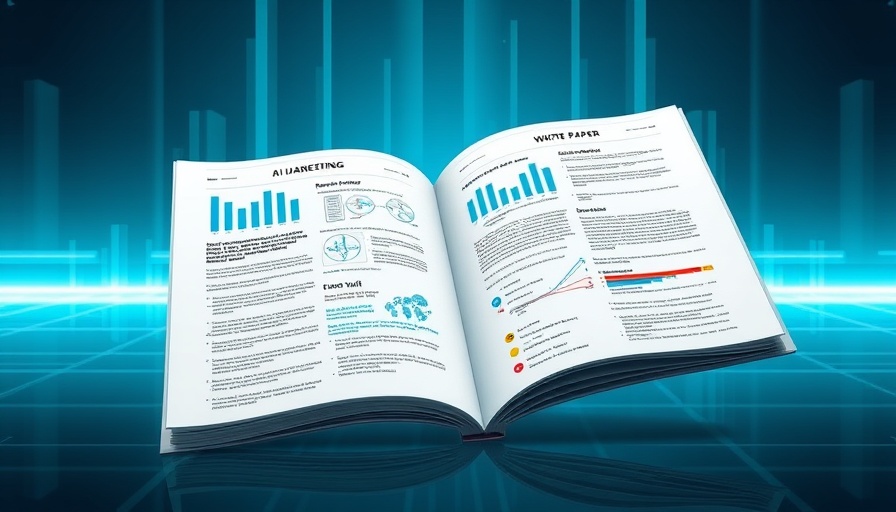
Understanding the State of AI in Marketing
In a landscape where artificial intelligence is increasingly central to marketing strategies, the State of AI In Marketing report sheds light on how industry leaders are leveraging this tool. With insights gathered from 155 senior marketers, directors, and C-suite executives, this report provides critical insights into the evolution of AI in content creation, workflow enhancements, and strategic investment. It’s clear that while many marketers are reaping the benefits of AI, others are still grappling with its challenges.
The Ascendancy of ChatGPT in Marketing
One of the standout findings from the report is the significant impact of ChatGPT. Over 83% of marketers reported that the platform has enhanced their efficiency. However, it’s essential to note that ChatGPT isn't alone; alternatives like Gemini and Canva AI are also gaining traction. Many marketers are now curating diverse AI “stacks” to benefit from unique strengths across various platforms, creating a multi-faceted approach to AI utilization.
The Transformative Power of AI in Content Creation
AI's most noticeable influence has been in content creation, with 64.5% of respondents acknowledging its role in value generation. Interestingly, AI is not seen as a replacement for creativity but as a tool for augmentation. Marketers are utilizing AI to optimize content and overcome creative blocks, enabling teams to work more efficiently while still preserving the human touch that defines brand voice.
Time Savings as a Major Advantage of AI
One of the most compelling statistics from the report indicates that 76.8% of marketers observe significant time savings thanks to AI adoption. This newfound efficiency allows marketing teams to focus on more strategic tasks, enhancing overall productivity. The ability to regain hours that were previously consumed by mundane tasks signals a promising shift within organizations as AI technologies mature.
The ROI Dilemma: Navigating Outputs and Quality
While operational efficiencies improve thanks to AI, significant concerns remain about return on investment (ROI). Despite streamlined workflows, important strategic metrics like customer lifetime value and lead quality are showing minimal improvement. Moreover, a staggering 54.2% of marketers identified inconsistent output quality as a significant barrier to embracing AI fully. This underscores the necessity for substantial human oversight to ensure that AI-generated content meets quality standards and aligns with brand stories.
Future Trends: AI's Role in Marketing Strategy
As we look ahead, the ongoing integration of AI in marketing isn't merely about adopting technology; it's also about reshaping the workforce and enhancing decision-making processes. Marketers need to craft a strategy that balances AI capabilities with human creativity to unlock meaningful outcomes. The insights from the State of AI in Marketing report reveal an evolution that will undoubtedly set the stage for future technological innovations within the field.
The journey of AI in marketing is still at a nascent stage, yet the findings suggest that we're on the brink of a major transformation. As marketers continue to adapt and learn, those who embrace AI thoughtfully will position themselves at the forefront of the tech-driven revolution in the marketing domain.
 Add Row
Add Row  Add
Add 




 Add Row
Add Row  Add
Add 

Write A Comment